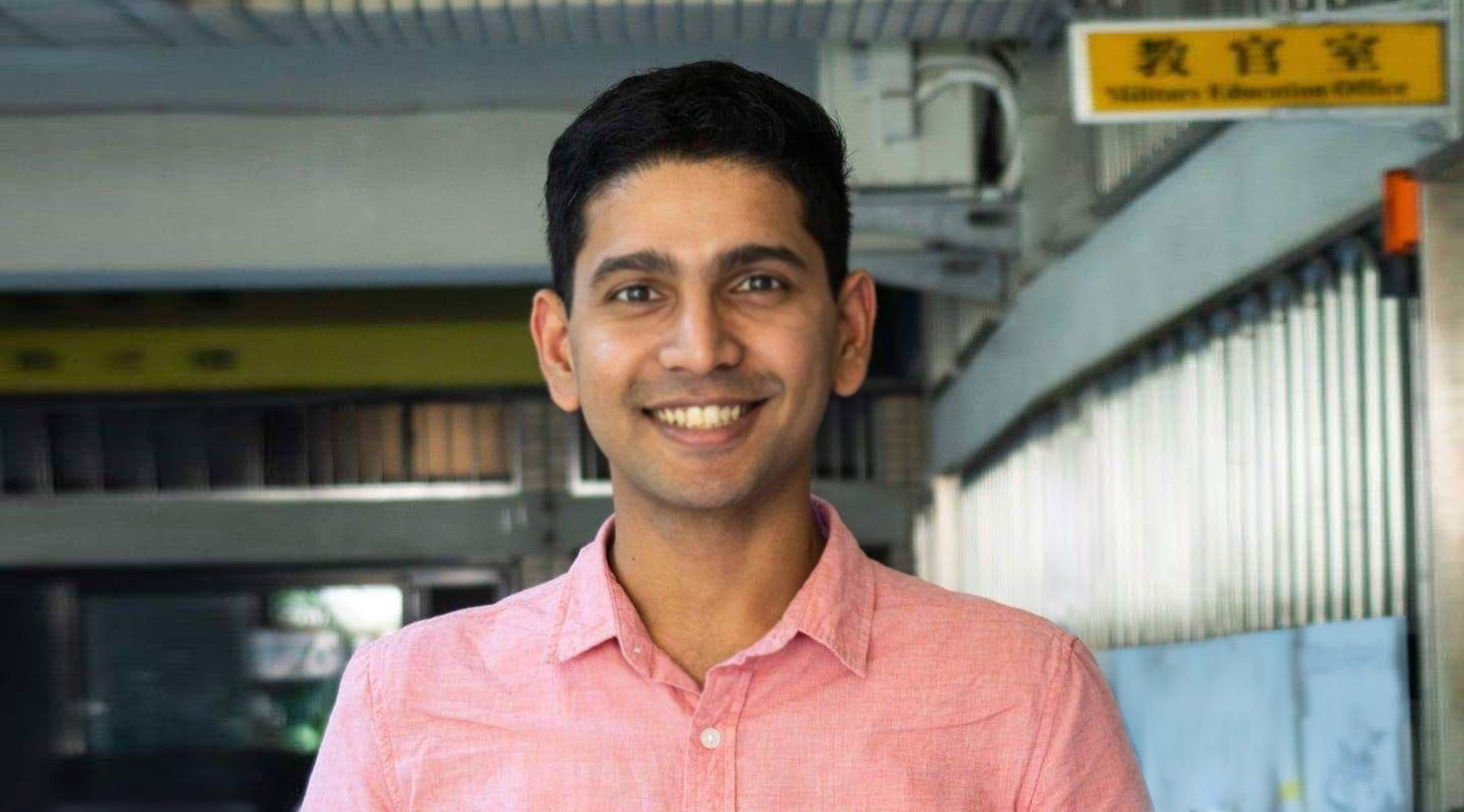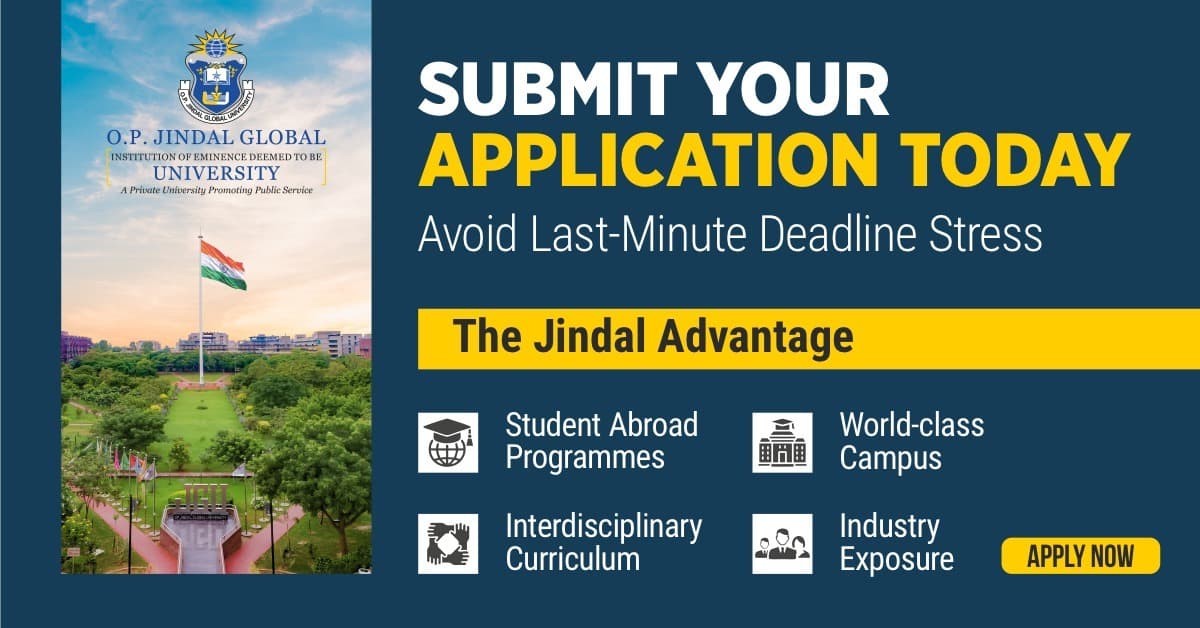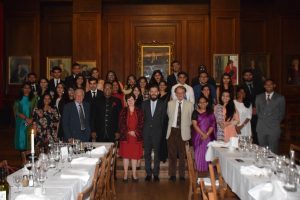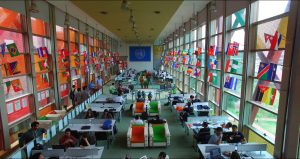The alumni network of O.P. Jindal Global University (JGU) includes individuals who are leading the way in their respective domains. Many have become global ambassadors not only for the University but the entire nation. Manoj Kumar Panigrahi, who is now a Ph.D. candidate in Asia-Pacific studies at the National Chengchi University, Taiwan, is certainly among them. The student of M.A. in Diplomacy, Law and Business (Class of 2016) at the Jindal School of International Affairs has gone on to delivered over 140 speeches across 63 elementary schools and universities in Taiwan so far, promoting Indian culture among students. His untiring efforts have led to his getting selected as the Outstanding Student for Taiwan’s Ministry of Education Scholarship (2016–2020) for the public services category.
Looking back on his journey at JGU, Manoj says, “JSIA has provided me with invaluable knowledge that I will always be grateful for. It gave me an opportunity to study what I enjoy and pursue my dreams. Professors here are very humble and approachable. The unique exchange programme was a very different experience for me. JSIA helped me to get a very different understanding of world affairs from an entirely different angle.” His words reflect the strong bond he continues to share with the University.
From the semester exchange programme during his time at JGU to the Taiwanese university in the Fall of 2015 to his rise as an ambassador for Indian culture, Manoj has indeed travelled a long way.
An exchange programme opens the doors
Manoj recalls his time at JGU as a stepping stone to experience the world and engage with diverse perspectives. While working closely with Dr. Samrat Sinha on ethnic violence and borderland development projects, he also took the Chinese language course at the Taiwan Education Centre (TEC) at JGU. Learning the basics of the language and making the effort to understand the culture, movies, and songs about Taiwan helped him approach his semester exchange programme with confidence. “Although I faced tons of challenges initially upon my arrival here in Taiwan from food, language, and culture, it helped me experience and gain many friends worldwide. Being at NCCU enabled me to meet people from around the world. I even had classmates who were diplomats from several countries. The stories and experiences they shared during on and off class discussions I will always be thankful for,” says Manoj.
“At TEC we celebrated the moon festival, dragon boat festival, and Chinese New Year together. It made the exchange programme more enjoyable. When I returned and shared my experiences with JSIA faculty members, I realised the need to experience Taiwan more. I applied for the Ph.D. programme at National Chengchi University and the scholarship at Taiwan’s de-facto embassy in New Delhi. I got chosen for both,” he reminisces.
Vocal for India globally
The thought of going back to Taiwan had filled Manoj with excitement. However, there was a mountain of documentation to be completed. He remembers with gratitude how the JSIA office provided every support with the paperwork and helped him on the journey. Being in Taiwan, travelling through rural areas, and learning about the Asia-Pacific region has enhanced his understanding of peace and conflict issues in a big way. But the experience also made him realise that there were several stereotypes about India, which left him frustrated. “I figured out that I couldn’t work with every individual I met to break these stereotypes. So, I came up with the idea of visiting schools, especially in rural areas. From discussing the meaning of ‘namaste’ to understanding India’s language differences, food culture, and space missions (ISRO), among other things, I try to cover a wide range of topics in these lectures,” he explains.
“I think this can be reciprocated in JGU as well. Given that we have diverse faculty and students, we can encourage them to share their culture in JGU and locality culture. Local schools could be contacted for a possible sharing by the foreign students in JGU. It will be a two-way sharing. Foreign students can better understand the local culture, and local students will gain something different from them,” suggests the young man determined to bring unity in diversity, wherever he goes.
Strengthening India–Taiwan ties
As he continues to raise awareness about Indian culture in Taiwan, Manoj has inadvertently become another bridge to strengthen the relationship between India and Taiwan. This was acknowledged when he was chosen as the Outstanding Student for Taiwan’s Ministry of Education Scholarship (2016–2020) for the public services category. “There is a growing awareness about each other’s culture on both sides, and I am glad to be playing a part in it,” he says candidly. He is also a research fellow at Taiwan Nextgeneration Foundation (TNGF), which has the head of the Taiwan–India parliamentary group as one of its key mentors. “The group is always looking to build stronger relationships with India. At TNGF, I am focusing on Taiwan’s New Southbound Policy, which aims to create deeper relations between Taiwan and South East and South Asian countries,” he says.
Strong and lasting bond with JGU
While Manoj is certainly going places, his roots remain strong. He holds a special place for the foundation where it all began—his alma mater. In fact, he fondly remembers receiving JGU students and faculty members for exchange programmes in Taiwan in the following years after his own stint. He also reveals that TNGF will be seeking more partnerships with Indian scholars and students. He believes it would be a fantastic opportunity for students of JGU and is happy to answer any queries they might have. “As a part of my research I am involved in making connections, partnerships, and joint collaborations with several Indian organisations,” he explains.
Talking about the University evokes nostalgia about the conversations around the flagpole and endless chats with friends. He recalls memories of the “vibe of the cafeteria, the music, and cultural events, and the library’s calmness” with such fondness, as if he were right back to living his days as a young student on the Sonipat campus. The support and encouragement he received from the faculty and staff at JSIA and JGU at large, helped him go from strength to strength in his academic and personal growth. Manoj’s time at JGU goes to show that learning can truly be lifelong. The English development classes he took back in 2015 nurtured the confidence to speak publicly, which has now become a major front for his work in Taiwan.
He also remembers the impact that discussion-based learning had on his career. The instruction style in JGU was something he never experienced during his undergraduate studies. It forced him to think and ask questions. “The art of questioning learned at JGU enabled me to uncover multiple puzzles in my studies and field of expertise,” he claims.
It’s this art of asking the right questions that Manoj brings to his thesis on ‘Separatist Movements and Private Diplomacy: Comparing Conflicts and Mediators in Peace Processes’. The study tries to determine the role of mediators in the peace process and understand why ethnic armed groups break away into factions. “Identifying the pros and cons of mediation in a peace process can help us understand the key variables essential for it. To conduct field studies, I went to Mindanao, Philippines, in 2018 where I was able to meet local stakeholders in the conflict there. With my JGU faculty Dr. Samrat Sinha’s help and guidance, I went to the Bodoland in Assam a couple of years ago. Right from pushing me to apply for the doctorate programme in Taiwan to helping me with my research till date, the role JGU and faculty members have played in my journey has been tremendous,” he signs off, talking about that one bond that perhaps precedes his ties with Taiwan.





